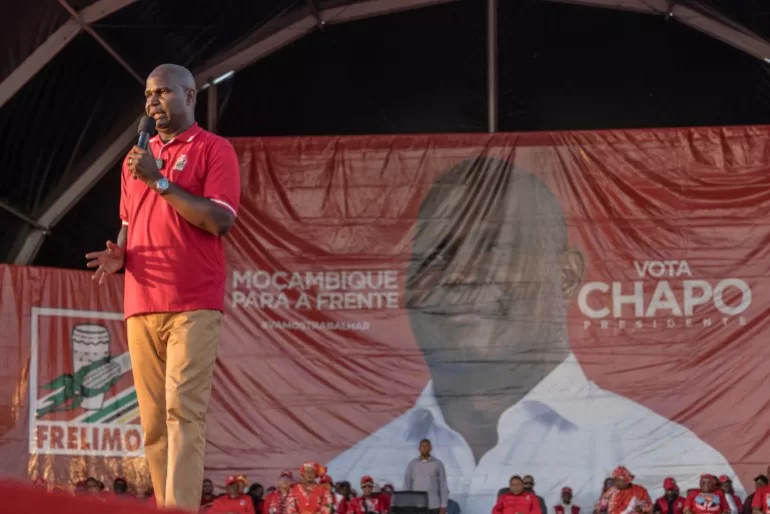Mozambicans are heading to the polls to vote in elections that could, for the first time, usher in a president born after the country’s independence from Portuguese colonisers in 1975.
Some 17 million of the country’s population of 32 million are eligible to vote in the coastal, resource-rich Southern African country on Wednesday. Parliamentary and provincial elections in the 11 provinces will be held simultaneously.
President Filipe Nyusi, 65, of the governing Mozambique Liberation Front (Frelimo) party, will step down after eight years in office.
He could be the last of Frelimo’s pro-independence fighters-turned-presidents who were at the front lines of the brutal liberation war that saw thousands of Mozambicans killed.
Nyusi’s presidency is stained by a mega “tuna bond” corruption scandal (2013-2016) that saw high-level Frelimo members in government jailed – including a former finance minister convicted in the United States in August. Several politicians involved were found to have accepted bribes to arrange secret loan guarantees for government-controlled fishing companies.
Voters are divided along promises of change from the competing candidates. At the same time, some older Mozambicans are less enthusiastic about a change of the old guard.
Many of the country’s youth, though, say they are tired of the old system and want more jobs and security, amid high levels of poverty and an armed conflict in the north.
Here’s what to know about the elections:
Who is running?
There are four approved candidates for the presidency:
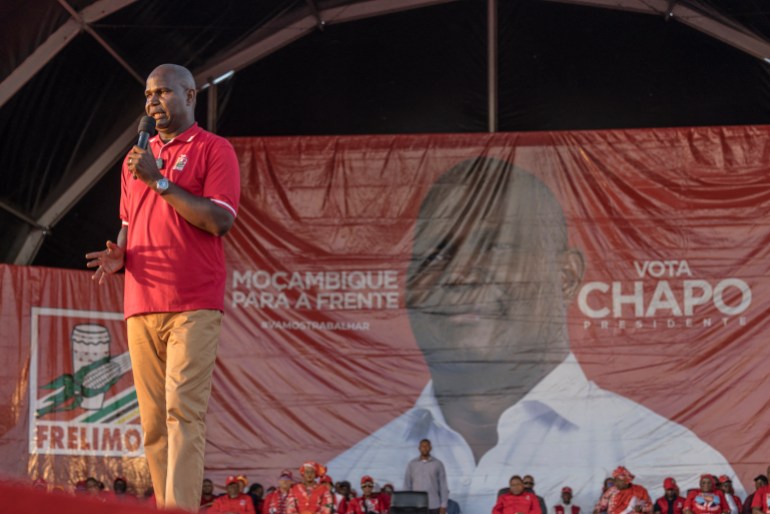
Daniel Chapo, 47
The newcomer politician is a favourite to win the elections because he has the advantage of Frelimo’s incumbency power, analysts say. Chapo only joined politics in 2011 but rose quickly to become Frelimo’s president in May 2024, following stints as a provincial governor in the southern coastal city of Inhambane. The politician claims that experience gives him an edge over his competitors.
During the six weeks of campaigning that officially closed on Sunday, Chapo distanced himself from the corruption-racked image of Frelimo. He also promised that peace would be restored to the Cabo Delgado province which is affected by years of armed conflict.
Chapo travelled to neighbouring South Africa in September to appeal to the large population of Mozambicans there who can vote abroad. He also met top leaders of South Africa’s main African National Congress (ANC) party – both Frelimo and the ANC see each other as allies, based on their histories of liberation struggles.
But many voters, especially young people, struggle to separate Chapo from the decay and corruption that has marked Frelimo’s 49 years in power, analysts say. In some parts of the country, Frelimo has become so hated that party members are booed at campaigns. The party is likely to win, some agree – but likely through fraud. Already, opposition parties are alleging that there are “ghost” voters on the electoral roll.
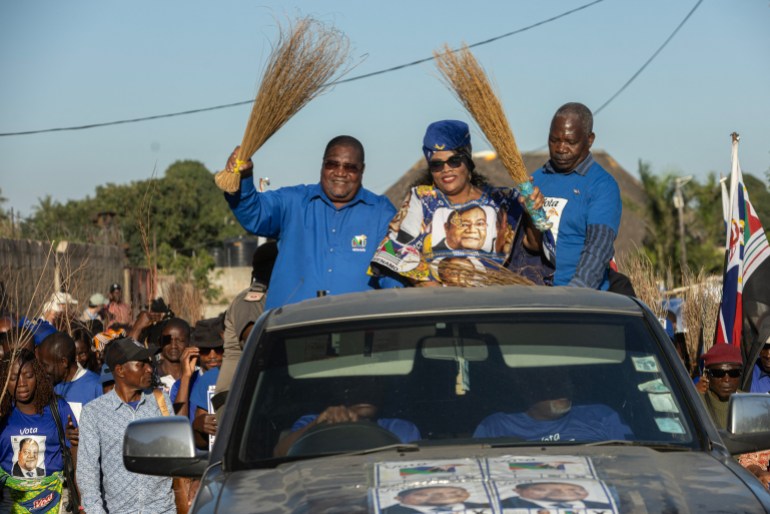
Ossufo Momade, 63
Momade is the leader of the opposition Mozambican National Resistance (Renamo), which boasts only 60 of 250 parliament seats, and just a few of the 65 municipalities.
In contrast to Chapo, Momade is still very much part of the old guard, having fought in the Mozambican civil war (1977-1992), during which Frelimo squared off against former rebel groups, including Renamo, which later transitioned into a political party.
Momade’s age has not watered his appeal among Renamo’s supporters in areas such as the northern Nampula. The politician is still hailed for being the Renamo leader who signed peace accords that brought the post-civil war Renamo rebellion (2013-2018) to an end in 2019.
The opposition leader gunned for the presidency in the 2019 elections, but secured only 21 percent of votes, compared with President Nyusi’s 73 percent. Momade contested the results and maintained the elections were fraudulent – as did European Union observers. Renamo officials also denounced municipal elections in October 2023 that saw Frelimo win in almost all locations.
Venancio Mondlane, 50
Nicknamed VM7, the charismatic Mondlane has secured a strong base among young Mozambicans – people aged 25 years and under make up two-thirds of the population.
Mondlane was a former Renamo deputy in the Mozambican House of Assembly, and unsuccessfully ran on the same platform for mayor of Maputo, the capital city, in 2023. However, he left Renamo when Momade did not step down.
Mondlane is running as an independent and is backed by the Democratic Alliance Coalition (CAD), a coalition of nine political groups. On social media posts, many of young Mozambicans say only Mondlane can guarantee change for the country. The excitement around him has some analysts worried about post-electoral violence – which is not uncommon in Mozambique.
Like his counterparts, Mondlane has promised to end violence in Cabo Delgado, create jobs and boost the healthcare system.
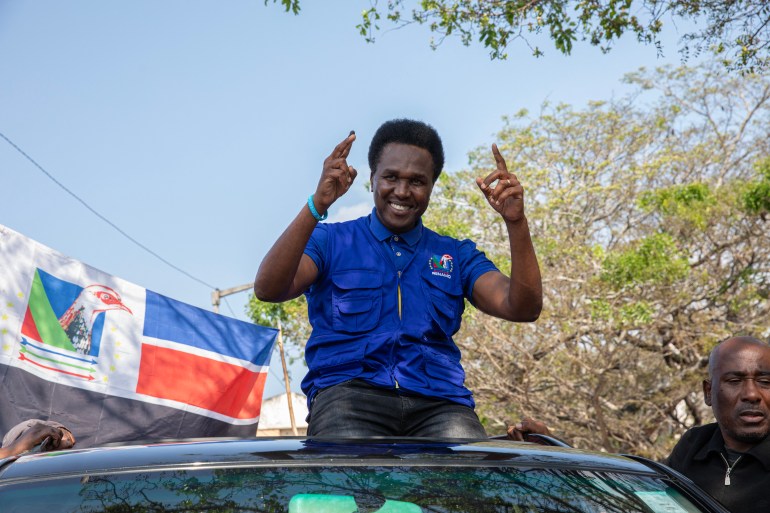
Lutero Simango, 64
Head of Mozambique’s third-biggest party, the Democratic Movement of Mozambique (MDM), Simango’s election promises have focused on building factories to create more jobs for young people by ensuring natural resources like timber are processed in-country, not exported.
How big are the elections?
Besides voting for a new president, voters will also choose:
- 250 members of parliament
- Provincial governors and officials in some of the 11 provinces
What are the key issues?
Nearly all candidates have focused on three main issues:
Armed conflict in Cabo Delgado
Top of mind for many Mozambicans is the armed conflict being waged by ISIL-Mozambique in the gas-rich northern Cabo Delgado province.
In 2017, a local group of fighters called al-Shabab (not linked to the armed group with the same name in Somalia) began brutally attacking locals, beheading people, and destroying businesses and infrastructure.
In 2020, airstrips and ports were destroyed as the fighters seized the town of Mocímboa da Praia, which houses multibillion-dollar gas projects led by French energy company Total and American company ExxonMobil. Hundreds have since been killed and 1.3 million displaced.
The group formally merged with the ISIL (or ISIS) group in May 2022. Thousands of troops from Rwanda and the regional Southern African Development Community have deployed to the area since July 2021. While they recovered territory and allowed some residents to return, analysts say the troops failed to hold those areas and fighters are re-grouping. Some 100,000 people have been newly displaced.
Chapo of Frelimo has said he would pursue talks with the fighters – a unique strategy so far – while continuing ground offensives.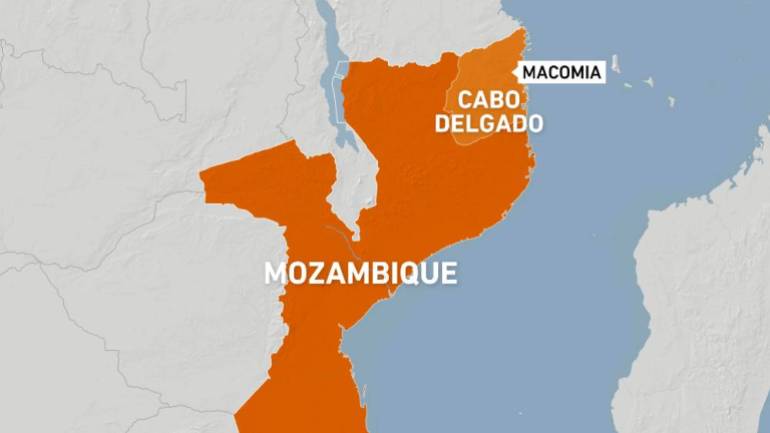
Job creation and boosting the economy
Two-thirds of Mozambique’s population is under 25, but many have no jobs as the country faces high levels of unemployment and poverty.
COVID-19 shocks pushed the number of poor people from 13 million to 18 million, according to the World Bank. This is despite the country’s immense natural gas, graphite, gold resources, as well as sandy beaches, which attract tourists.
Corruption has further drained resources. The “tuna bond” scandal saw officials plunder loans, costing the country $2bn in “hidden debts” that caused a financial crisis after the International Monetary Fund temporarily stopped financial support in 2016.
Climate resilience
The main presidential candidates have all mentioned focusing on development issues and solving the hunger crisis.
Mozambique’s vulnerability to climate shocks worsens persistent hunger. The World Food Programme says some 1.3 million people in the country are facing severe food shortages because of a drought induced by the El Nino-weather phenomenon which drives temperatures up.
In 2019, Mozambique was hit by Hurricane Idai in March and Hurricane Kenneth in April. More than 1,500 people died.
When will the results be announced?
Vote counting will start immediately after polls close on Wednesday and partial results will be announced as they are collated.
The National Election Commission will announce official tallies after 15 days. Contesting parties can then file objections with the Constitutional Council, which will decide their merit.
